Why Is My Skin Peeling After Skincare Treatments: Understanding Common Causes and Solutions. Have you ever followed a new skincare routine, only to find your skin peeling and flaking instead of glowing? It’s a common and frustrating issue, leaving many wondering,
“Why is my skin peeling after skincare?” This unexpected reaction can turn the excitement of trying new products into a perplexing skincare conundrum.
Whether you’re dealing with dry patches, redness, or an unsightly texture, understanding the root causes can help you navigate your skincare journey with confidence and achieve that coveted radiant complexion. Let’s dive into the possible reasons behind this peeling phenomenon and how you can effectively address it.
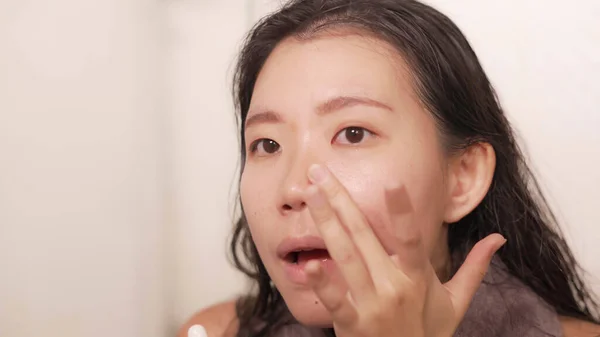
Why Is My Skin Peeling After Skincare?
If your skin is peeling after skincare, it may be due to over-exfoliation, allergic reactions, or using harsh products. This can damage the skin barrier, leading to dryness and flaking. Identifying the cause is essential for proper treatment. Adjusting your skincare routine can help restore your skin’s health.
Common Causes of Skin Peeling
Skin peeling after skincare can result from various factors. Over-exfoliation is a primary cause. Exfoliating too frequently or using products with high concentrations of active ingredients like glycolic acid, salicylic acid, or retinol can strip the skin of its natural oils. This weakens the skin barrier, leading to dryness and peeling.
Allergic reactions to certain skincare ingredients, such as fragrances, preservatives, or essential oils, can also cause peeling. These reactions may present as redness, itching, and flaky skin. Harsh skincare products, including those with alcohol or sulfates, can exacerbate this issue by further drying out the skin.
Additionally, environmental factors like cold weather, low humidity, and sunburn can contribute to peeling. Understanding these causes is crucial for addressing and preventing skin peeling effectively.
Signs of Over-Exfoliation and How to Prevent It
Over-exfoliation often manifests as redness, sensitivity, and peeling. To prevent over-exfoliation, limit the use of exfoliating products to 1-2 times per week. Choose gentler exfoliants, such as lactic acid or enzyme-based products, which are less likely to cause irritation.
Hydrating and nourishing the skin with a good moisturizer can help maintain the skin barrier. Look for products containing ceramides, hyaluronic acid, and glycerin to provide moisture and support skin repair.
Avoid combining multiple exfoliating products or using them with other potent active ingredients. This can reduce the risk of peeling and maintain healthy skin.
Addressing Allergic Reactions in Skincare
Identifying and eliminating allergens from your skincare routine is vital. Conduct patch tests before introducing new products to your regimen. Apply a small amount of the product on your forearm or behind your ear and wait 24-48 hours to check for any adverse reactions.
If your skin shows signs of an allergic reaction, discontinue use immediately. Opt for hypoallergenic and fragrance-free products designed for sensitive skin. Ingredients like chamomile, aloe vera, and oatmeal can soothe irritated skin and reduce inflammation.
Consulting a dermatologist can help you determine which ingredients are safe for your skin type and address any persistent issues.
Choosing the Right Products for Your Skin Type
Selecting skincare products tailored to your skin type is essential to prevent peeling and maintain skin health. For dry skin, choose rich, hydrating creams with emollients like shea butter and oils. For oily or acne-prone skin, opt for lightweight, non-comedogenic moisturizers that won’t clog pores.
Combination skin can benefit from balancing products that hydrate dry areas while controlling oil in the T-zone. Avoid products with harsh ingredients, such as alcohol, sulfates, and high concentrations of acids, especially if you have sensitive skin.
Regularly moisturizing and using sunscreen daily can protect the skin barrier and prevent peeling caused by environmental factors.
Environmental Factors Contributing to Skin Peeling
External factors, such as weather changes and sun exposure, can significantly impact your skin’s health. Cold weather and low humidity levels can strip moisture from the skin, causing dryness and peeling. Protect your skin by using a humidifier indoors and applying a thicker moisturizer during colder months.
Sunburn from excessive UV exposure can also lead to peeling. Always wear broad-spectrum sunscreen with at least SPF 30, reapplying every two hours when outdoors. Wearing protective clothing and seeking shade can further safeguard your skin from sun damage and peeling.
Restoring and Maintaining Healthy Skin
To restore and maintain healthy skin, focus on gentle, consistent care. Cleanse your skin with a mild, hydrating cleanser to avoid stripping natural oils. Follow up with a soothing toner and a nourishing moisturizer. Incorporate hydrating serums containing hyaluronic acid and antioxidants to protect and repair your skin.
Drink plenty of water and maintain a balanced diet to support overall skin health. Regularly monitor your skin’s condition and adjust your skincare routine as needed to address any changes or concerns promptly. By following these steps, you can prevent peeling and enjoy a healthy, radiant complexion.
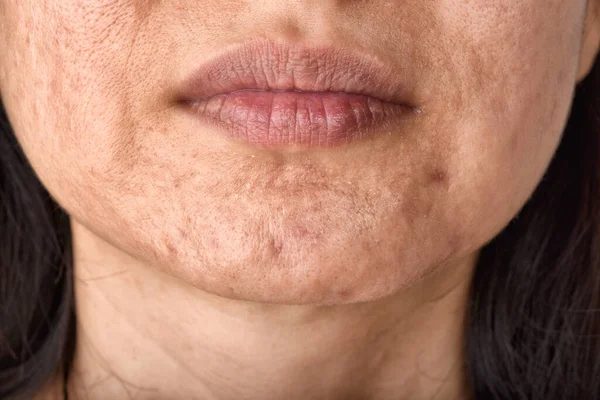
Understanding Skin Peeling
Definition of Skin Peeling
Skin peeling, also known as desquamation, refers to the shedding or flaking of the outermost layer of the skin. This process can be a natural part of skin renewal or a response to external factors. Common terms associated with skin peeling include flaking skin, dry patches, and skin exfoliation.
Common Areas Where Skin Peeling Occurs
Skin peeling frequently occurs on the face, hands, feet, and scalp. These areas are more exposed to environmental factors like sun exposure, dry air, and irritants. Keywords often used in this context include peeling feet, dry hands, flaky scalp, and facial peeling.
Normal vs. Abnormal Skin Peeling
Normal skin peeling is part of the skin’s renewal cycle, often resulting from mild dryness or sunburn. Abnormal skin peeling, however, may indicate underlying conditions such as eczema, psoriasis, or infections. People might describe abnormal peeling with phrases like persistent flaking, severe dryness, or skin shedding.
Common Causes of Skin Peeling After Skincare
Over-Exfoliation
Over-exfoliation, whether through physical scrubs or chemical peels, can lead to skin irritation and peeling. Signs like redness, sensitivity, and increased dryness indicate over-exfoliation. It’s crucial to exfoliate gently and limit frequency to avoid damaging the skin’s barrier.
Allergic Reactions
Many skincare products contain allergens such as fragrances, preservatives, and certain botanical extracts. Symptoms of an allergic reaction include itching, rash, and pronounced peeling. To avoid allergens, read labels carefully and perform patch tests before full application.
Incorrect Use of Products
Improper use of potent products like retinoids and acids can cause excessive drying and peeling. Layering products incorrectly, such as mixing incompatible ingredients, can also lead to adverse skin reactions. Always follow product instructions and consult a dermatologist for personalized advice.
Environmental Factors
External elements like dry climates, harsh weather conditions, and indoor heating or air conditioning can contribute to skin peeling. Adjusting skincare routines seasonally and using humidifiers can help mitigate these effects.
Medical Conditions
Underlying skin conditions such as eczema, psoriasis, and infections like fungal or bacterial dermatitis can cause persistent peeling. Seek medical advice if peeling is accompanied by pain, inflammation, or doesn’t improve with standard skincare practices.
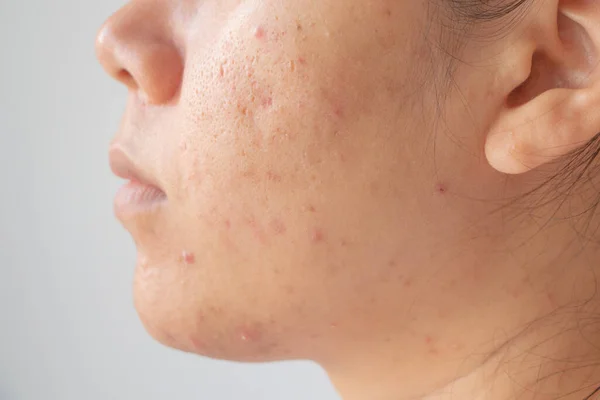
Prevention and Management of Skin Peeling
Skin peeling can be a bothersome issue, but with the right approach, it can be effectively prevented and managed. Here’s how you can take care of your skin to avoid peeling:
Patch Testing New Products
How to perform a patch test
Before applying a new product widely, perform a patch test by applying a small amount to a discreet area of skin.
Importance of patch testing
This helps identify potential allergic reactions or irritations, ensuring safety before full application.
Hydration and Moisturization
Role of moisturizers in skincare
Moisturizers play a crucial role in maintaining skin barrier function and preventing dryness.
Best ingredients for hydration
Look for ingredients like hyaluronic acid and glycerin, which attract and retain moisture in the skin.
Tips for maintaining skin moisture
Drink plenty of water and use moisturizers immediately after bathing to lock in hydration.
Gentle Skincare Routine
Choosing gentle cleansers and products: Opt for mild, fragrance-free cleansers to avoid stripping the skin of natural oils.
Avoiding harsh ingredients
Steer clear of alcohol-based products and exfoliants that can exacerbate peeling.
Adopting a minimalist skincare approach
Simplify your routine to reduce the risk of irritation and sensitivity.
Protecting Skin from Environmental Stressors
Importance of sunscreen
Apply broad-spectrum sunscreen daily to shield against UV rays, which can cause dryness and peeling.
Protective clothing and accessories
Wear hats, sunglasses, and clothing that covers exposed skin to further guard against environmental damage.
Adjusting skincare routine according to weather
During colder months, use richer moisturizers, while lighter formulations are suitable for warmer weather.
Consulting a Dermatologist
When to seek professional help
Consult a dermatologist if peeling is severe, persistent, or accompanied by other symptoms like itching or inflammation.
Benefits of a personalized skincare plan
Dermatologists can tailor treatments and skincare routines to address specific skin concerns and prevent further peeling.
Treatment options for severe peeling
Depending on the cause, treatments may include prescription creams, chemical peels, or other advanced dermatological interventions.
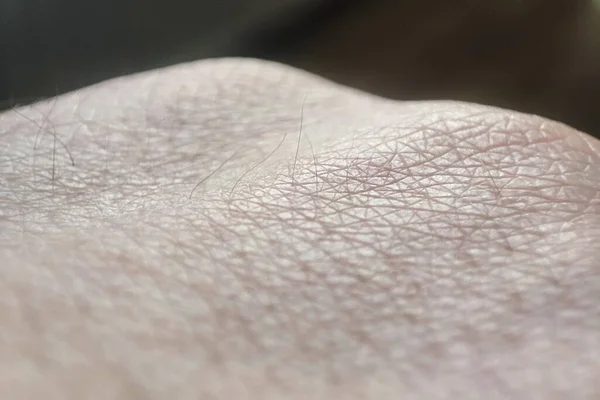
Case Studies and Testimonials
Real-life Experiences of Skin Peeling
Skin peeling can be distressing. Many individuals share stories of peeling skin after sunburn, dry weather, or harsh skincare products. The discomfort, itchiness, and embarrassment are common complaints. These personal accounts highlight the everyday struggles of managing peeling skin.
How Different Individuals Addressed the Issue
Various methods have been tried to combat skin peeling. Moisturizers with hyaluronic acid and ceramides are frequently mentioned. People also discuss the benefits of gentle exfoliation and hydration. Some have turned to natural remedies like aloe vera and coconut oil. These solutions aim to soothe and heal the skin effectively.
Success Stories and Lessons Learned
Success stories abound. One user shared how a consistent skincare routine helped prevent peeling. Another found relief with a dermatologist-recommended product. These testimonials underline the importance of understanding one’s skin type. The key lesson is that with the right approach, skin peeling can be managed successfully.
FAQs
Why is my skin peeling after using new skincare products?
Peeling skin can be a common reaction when introducing new skincare products. This can occur because your skin is adjusting to the new ingredients, which may cause irritation or an increased rate of cell turnover. Ingredients like retinoids, alpha hydroxy acids (AHAs), and beta hydroxy acids (BHAs) are known to cause peeling as they exfoliate the skin and promote cell renewal.
Is peeling skin a sign that my skincare products are working?
Not necessarily. While some products, particularly exfoliants and retinoids, can cause peeling as a part of their mechanism of action, excessive peeling might indicate that your skin is irritated or damaged. It’s essential to differentiate between mild, expected peeling and severe irritation that could harm your skin barrier.
How can I prevent my skin from peeling when using new skincare products?
To minimize peeling, start by introducing new products gradually. Use them once or twice a week and slowly increase the frequency as your skin builds tolerance. Additionally, ensure your skin is well-hydrated by using a good moisturizer and avoid combining multiple active ingredients that might increase irritation.
Should I stop using a product if my skin starts peeling?
If the peeling is mild and expected from the product, you may not need to stop using it entirely. However, if you experience severe peeling, irritation, or discomfort, it’s advisable to stop using the product and consult a dermatologist. They can provide guidance on how to proceed and suggest suitable alternatives.
Can peeling skin be harmful?
Yes, excessive peeling can be harmful as it may indicate that your skin barrier is compromised. This can lead to increased sensitivity, dryness, and susceptibility to infections. It’s crucial to monitor your skin’s reaction and take appropriate measures, such as reducing the use of irritating products and applying soothing, barrier-repairing treatments.
Are there specific ingredients that cause skin peeling more than others?
Yes, certain ingredients are more likely to cause peeling. Retinoids (vitamin A derivatives), AHAs (like glycolic acid), BHAs (like salicylic acid), and strong chemical peels can increase cell turnover and lead to peeling. Always introduce these ingredients slowly and use them as directed to minimize adverse effects.
How can I soothe my peeling skin?
To soothe peeling skin, use gentle, hydrating products. Look for ingredients like hyaluronic acid, ceramides, and aloe vera, which help to restore moisture and repair the skin barrier. Avoid harsh exfoliants and opt for a mild, non-foaming cleanser to prevent further irritation.
Can seasonal changes affect skin peeling?
Yes, seasonal changes can impact your skin, leading to increased peeling. For instance, cold, dry weather in winter can strip your skin of moisture, making it more prone to peeling. Adjust your skincare routine to include richer moisturizers and protect your skin from harsh environmental factors.
What role does hydration play in preventing skin peeling?
Hydration is crucial for maintaining healthy skin and preventing peeling. Proper hydration helps to maintain the skin barrier and promotes a smooth, even texture. Drink plenty of water, use hydrating skincare products, and avoid overly hot showers that can strip your skin of natural oils.
When should I see a dermatologist about my peeling skin?
If your skin peeling is persistent, severe, or accompanied by other symptoms like redness, itching, or pain, it’s important to see a dermatologist. They can diagnose any underlying conditions and recommend appropriate treatments to address your skin concerns effectively.
conclusion
In conclusion, skin peeling after skincare can result from various factors, including product ingredients, allergic reactions, and improper usage. Understanding the cause is essential to address the issue effectively.
By choosing gentle, hydrating products, avoiding over-exfoliation, and consulting with a dermatologist, you can maintain healthy, resilient skin.
Always pay attention to your skin’s response to new products and adjust your skincare routine accordingly to ensure optimal results and prevent peeling.
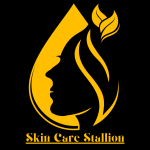
Your point of view caught my eye and was very interesting. Thanks. I have a question for you.